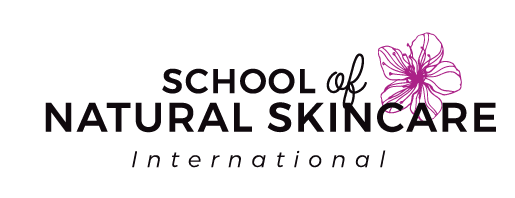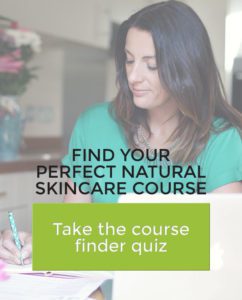If you are a student of ours, or have been following us for a while, you’ll know that many skincare and haircare products need preservatives. Preservatives prevent microbial spoilage that would make the product unsafe for consumers.
The general rule is that if a product contains water (or an aqueous liquid like aloe vera, or flower water) it needs to contain a broad-spectrum preservative that is effective against bacteria, mold and yeast.
But what about products that don’t contain water?
What about solid bars, like shampoo bars and body wash bars?
It’s not always obvious or clear-cut with anhydrous products and solid bars so let’s explore these questions in more detail.
Do products that don’t contain water need preservatives?
Anhydrous (water-free) products generally don’t require preservatives as they are not prone to microbial contamination. This includes products like lip balms and anhydrous whipped body butters.
The exception here is an anhydrous product that might come into contact with water (eg a body scrub or a cleansing balm applied with wet fingers).
With these types of products you either need to be very careful not to introduce water to the product during use, or you should include a preservative.
What about solid products like shampoo bars, conditioner bars and cleansing bars? Do they need preservatives?
These are interesting types of products. They are usually anhydrous (they don’t contain water), so they are not prone to microbial growth. However they are used in the shower or around water so they will get wet frequently.
It is a common belief that solid, water-free cosmetic products do not require preservatives and some formulators and brands choose not to include preservatives in these types of products as they consider the risk of microbial growth to be low.
While this may be true to some extent, cleansing, conditioning and exfoliating products are normally used in and around water, so there is a high chance they will get wet. This can potentially lead to microbial contamination and growth. For this reason, we include a preservative in these types of formulations and we recommend our students do, too.
There is far more risk involved if you choose not to include one, and it’s not a risk we want to take. With several safe and natural preservatives to choose from, we consider that a much better option.
I thought preservatives are water soluble; so how do you add one to an oil-based or anhydrous solid product?
This is a very good question! As preservatives are usually used in water-based products they are usually water soluble.
Water soluble preservatives are effective against microbes present in water, but as they are water soluble they will not be soluble in a purely oil-based formula such as a conditioner bar or oil-based cleansing bar.
Some preservatives, however, are slightly oil soluble. The presence of salicylic acid, benzyl alcohol or glyceryl caprylate in the preservative blend allows it to be miscible with oils too, at least up to a point.
In our oil-based bars that will come into contact with water such as makeup remover bars, cleansing bars and hair conditioner bars, we chose to use Geogard 221 (INCI: Dehydroacetic Acid, Benzyl Alcohol), as it is effective across a wide pH range and has good oil solubility so it can be used in water-free products easily. This can also be used in surfactant-based shampoo bars.
An alternative for surfactant-based bars such as shampoo bars is Geogard Ultra (INCI: Gluconolactone (and) Sodium Benzoate). This is a water soluble preservative but it comes in a powder form that can be easily mixed with the other powders in the formulation.
How about cold process soap bars? Do they need preservatives?
Cold process soap bars are an exception – they are solid products used in water that don’t require preservatives.
After soap bars have been cured, they still contain some water, and so we might expect that water to become the source of microbial growth. However, water in soap bars is not available to microorganisms as it is bound up in the crystalline structure of soap at the molecular level.
For this reason, it is common to say that soap has ‘low water activity’.
Another aspect that protects soap bars from microbial spoilage is their alkaline pH, which is so high that it is impossible for microorganisms to live in or on it.
Therefore, natural soap bars do not require any preservatives.
Expert guidance on solid product formulation
As you can see there are some grey and misunderstood areas in solid product preservation.
With the proliferation of tutorials online by well-meaning but unqualified ‘experts’, it can be hard to know what’s right and what is wrong.
Our team of professional cosmetic chemists have been busy working on solid product formulations since 2020 and we have packaged up all their expertise into our online Diploma in Zero Waste Skincare and Haircare Formulation.
This multimedia online course will teach you to formulate a wide range of solid, package-free products, including solid facial cleansers and exfoliators, solid moisturizers and serums, solid deodorant, solid shower products, solid shampoo and conditioner.
We’ll set the record straight about lots of topics like preservatives, surfactants, emulsifiers and pH. Plus you can reach out to our scientists with any questions you have.
You’ll also formulate powder concentrates, and learn about ingredient innovations that are helping to reduce waste – upcycled ingredients and biofermentation.
We hope you’ll join us for this innovative and exciting new online course.


















